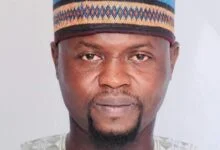An Ewe book “Ŋu Nyui Ade Ke” launched in Accra
An Ewe book titled: “Ŋu Nyui Ade Ke”, translated as; ‘A New Dawn’ has been launched in Accra to promote and encourage the reading and speaking of the Ewe language.
It was authored by Mrs Gifty Akosua Baka, the Director of Development and Social Services at the Global Evangelical Church headquarters at Tesano in Accra, and a native of Peki in the Volta Region.
The book tells a story about a renowned lawyer, Dzogbese, who lost both parents in two separate armed robbery incidents during his youthful years.
As he had nowhere to go because he did not know any extended family members nor where his parents came from, young Dzogbese accepted the offer of his best friend’s parents to move in with them.
Dzogbese later grew to be a wealthy and influential lawyer but still felt inadequate as the search for his biological root had not yielded any results.
The Ŋu Nyui Ade Ke also contains cultural practices and artefacts of the Ewes such as childhood games, folklore and music.
The book is dedicated to 97-year-old Madam Esther Violet Ama Leh, well-known as Abordzokpodada in honour of her selfless teaching service to children during the author’s nursery school days.
Dr Prosper P.D. Asima, the Western Regional Commander of the Ghana Immigration Service who launched the book, said evidence from many scholarly researches confirmed that language was one of the most effective ways of determining a person’s identity and cultural background.
“If indeed the culture of a people is ingrained in their language, and culture is the embodiment of a people’s beliefs and knowledge systems, then Ewe, like other indigenous languages in Ghana needs to be preserved,” he said.
Dr Asima said current research show a shift from the use of indigenous languages, including Ewe in urban spaces to the use of the English language.
“Indeed, the 2010 Housing and Population Census in Ghana revealed that 20.1 per cent of Ghanaian children below the age of 11 can speak only the English language and no other indigenous language,” he said.
“I therefore find Mrs Baka’s publication very relevant and timely and indeed a bold step. We need to make a conscious effort for the survival of Ewe and I believe this initiative would enrich the existing literature in our schools and also serve as a general reading material to promote the maintenance of the Ewe language.
Mrs Baka in a speech said; “I must confess that before I finalised my book for publication, I combed some major bookshops and libraries in Accra. I realised that either Ewe books are completely absent from the shelves or just the recycled of old Ewe literature books.
“So I realised that Ewe literature is at the verge of extinction in the near future if care is not taken to revive it.”
She said urbanisation and migration continue to deprive the current generation of children of Ewe descent of speaking their local language, as English had become the common language for communication and the urban communities and schools.
“It is becoming increasingly difficult for Ewes to identify their fellow Ewe citizens by means of language because people are not willing to speak the Ewe language in public.
“Only our Ewe names remain a pointer to our root but even that some people try to pronounce the names in English thus adulterating the meaning and cultural importance of the names,” the writer said.
Mrs Baka said it was time to rekindle the interest of speaking “Ewegbe among the Ewes. Our language is our unifier and we cannot afford to lose our cultural identity to urbanisation and modernity.”
“It is time, we parents of Ewe descent, find innovative and interesting ways of teaching, reading and communicating in Ewe to our urbanised children.
“Ŋu Nyui Ade Ke, is written in simple Ewe and would serve this purpose excellently if all of us are determined to help our children identify who they are and the culture they belong to.
“It is my expectation that this book becomes an academic literature book for Junior and Senior High Schools in Ghana,” Mrs Baka said.
She expressed gratitude to all those who assisted in the publication of the book.
BY TIMES REPORTER




